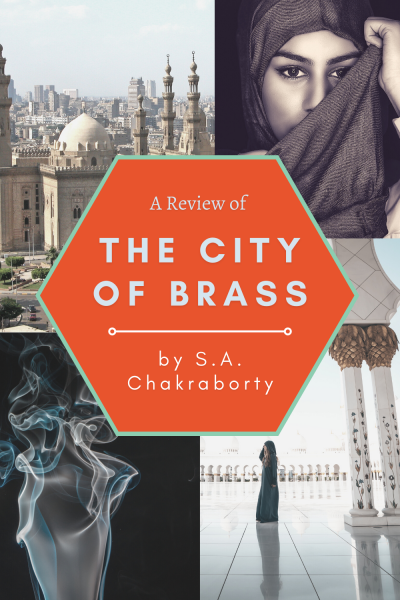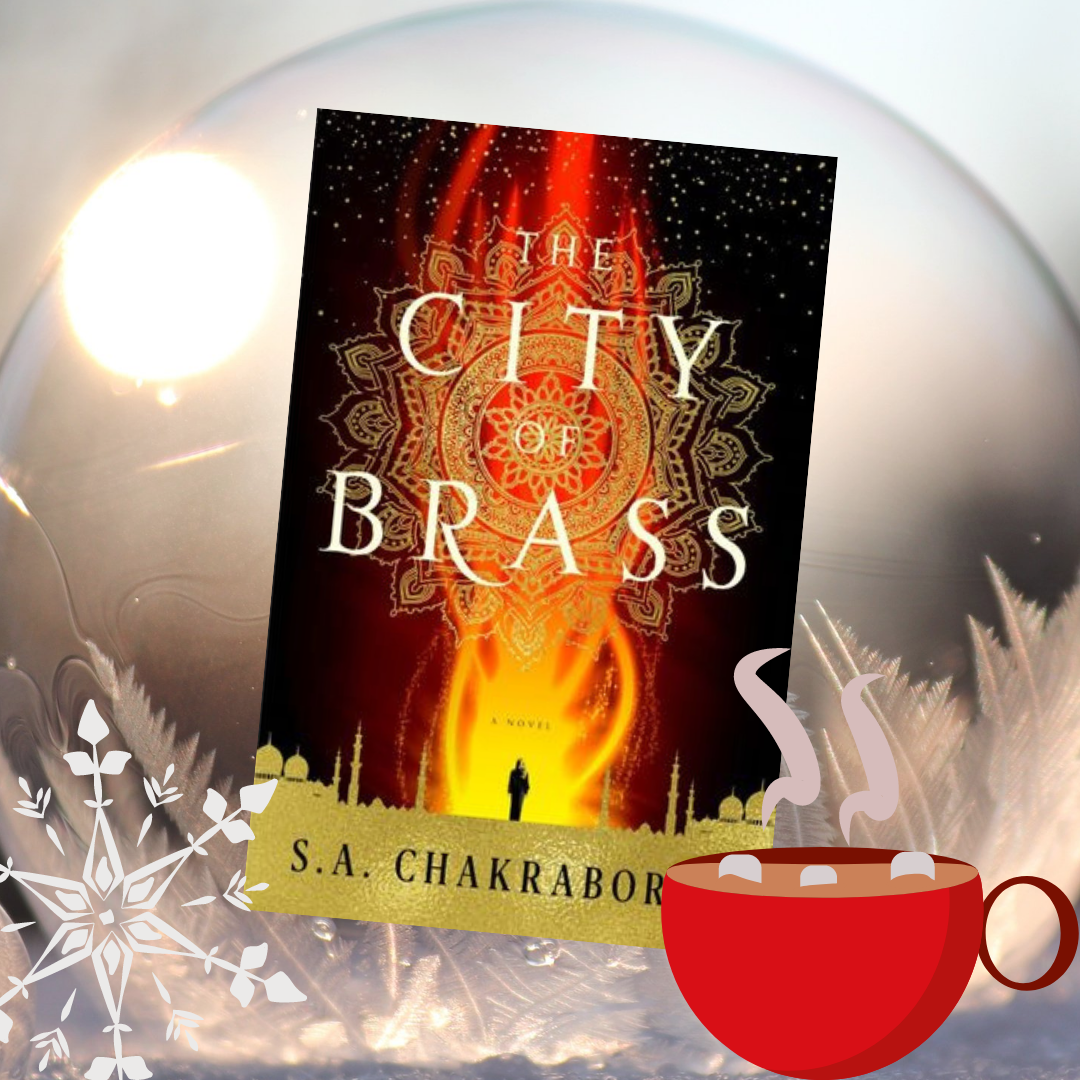Looking for fantastic world-building, a non-European setting (and creatures), a dash of history and unique characters in fantasy? Keep reading my The City of Brass review to learn more.

A young woman is plucked from the streets and told she’s really a princess: you’ve heard that story before. The kind-hearted prince who has doubts about his father’s rule: I’m guessing you’ve heard that too. The bloodthirsty warrior brought back as an all-powerful slave by scheming ifrit who refused to submit to Suleimann’s laws that created the tribes of djinni and daevas, who then created ghouls to attack the princess, whom the enslaved warrior must protect…wait, what?
Even if you’ve heard the first two tropes, I guarantee you haven’t heard it like S.A. Chakraborty tells them in the first book of the beloved Daevabad Trilogy, The City of Brass. Divided amongst the narratives of Nahri, a young con in Cairo, Ali, a prince sworn to serve his brother’s future crown, and occasionally Dara, the once-famed or reviled daeva warrior, the world-building and complexity of the characters are beyond impressive.
In The City of Brass, I thought Ali had the strongest narrative and best writing. Nahri’s transition from scheming human to daeva political player is inevitably slower and more awkward. Beginning the story as a selfish survivor, her heart quickly gets in the way of her streetwise nature. It’s surprising to see Nahri get swept away, and far more satisfying to see her play to her strengths.

Already immersed in the fascinating city of Daevabad, Ali’s side of the story was more compelling for me. Perceived by others as either a hero or a dangerous zealot, Ali is soft-hearted to his own detriment. His work to help the scorned half-humans of Daevabad drops him into the exact political intrigue he’s meant to avoid. That’s the purview of his draconian father, King Ghassan, and his brother the Emir.
As sympathetic as Ali is, Chakraborty does an excellent job showing the perspective of the other side (which includes Nahri). Daevabad is shared by all the tribes, and their dynamics are beyond three-dimensional. In conversation, I gush about all the thought and careful crafting that went into the daeva world.
If you haven’t visited Daevabad yet, I encourage you to arrange a tour through your friendly neighborhood bookseller—and then clear your schedule for a few days. The City of Brass is a longer book that’s worth every page.
To learn more about this author, visit sachakraborty.com.